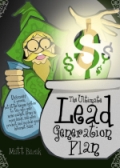How to Get Targeted Search Engine Traffic Quickly

Here’s the “How-To-Do-It Guide” for driving search engine traffic right to your website.
I only speak about methods I have used and that worked well for my business. There are a lot of people out there who will steer you in the wrong direction because they are just regurgitating old information that might have worked years ago. I’ll help you discover what’s happening right here, right now. Let’s get started with the plan.
Your first step is to define your target market. The better you are able to define your niche, the better your future clients will be able to find you and your products or services.
Next, you want to get very specific about what you’re going to market on your webpage and make sure that it’s congruent with our next step. When a person finds you on a search engine, you have a window of only 3 to 5 seconds to convince them that you are exactly what they were looking for. Make it crystal clear what you offer. If your meaning is unclear, the prospect will jump to the next site and you’ll lose that business.
The following step is to brainstorm your keywords - keeping in mind your target audience. How would they search for me? What would they look for? Don’t focus on how you identify yourself. The closer you are to your target audience, the more hits you will get, which equates to more customer traffic. The more specifically you target, the better off you are. You’re not going to have success if you list yourself too generically, there is too much competition and you’ll be lost in the crowd.
Once you have established your target market, define what specific categories you should be linking to and add them as part of your navigation page. A linking strategy is very important for building your link reputation. Links to your page will count towards link reputation and link popularity.
There are a lot of different search engines - six in particular that give you about 90% of all web-traffic. Of those Google has the most web traffic so we’ll focus on it. Google has a link page rank feature which rates the importance of your page. You’ll want to download their toolbar http://toolbar.google.com. This will allow you to view the ranking of every site you visit and how important it is in the almighty eye of Google. This is a key ingredient in determining linking strategy. Google ranks itself as a 10 on their scale of 0 to 10 (the higher the ranking, the more important a page). This is determined essentially by who is endorsing and linking to you.
You must map out how you’re going to get Google give to you a high page rank. For Google, the most important attribute is the title tag. You want to make sure you use your most targeted key word in the beginning of your title tag. Google will typically list the first 83 characters so the title is where you put your most valued key word(s) so it can be easily accessed.
The next maneuver is to focus on your link relevancy. Link relevancy is how well the text on your pages relates to your title tag, also taking in consideration the content of neighboring web pages. The analysis of all of this data enables Google to return results that are relevant to user queries. You want to be sure you are listed in user queries so make your content match your title, match your links, and match your products and or services. Remaining consistent and obvious is your key to directing traffic to your site.





















































































<< Home